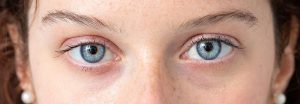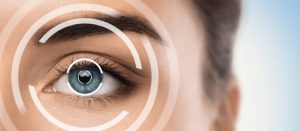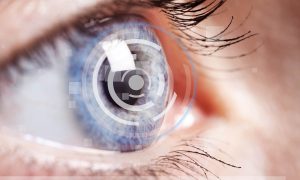Got Cataracts?
The choice to turn
back time is yours
Cataracts usually develop slowly over time, affecting one or both eyes. Aging, eye injuries or diseases such as diabetes are just some of the causes.
With healthy eyes, the lens focuses the light on the retina creating a clear natural image. With a cataract, the eye lens becomes cloudy, and less light gets through. As a result, people with cataracts often experience unclear vision and decreased quality of life.
But it doesn’t have to be that way…
The most common symptoms of cataract
Hover the mouse over the images
Tap on the images
Blurred images
Glare
Faded colors
Double vision
Poor night vision
Prescription changes
Today, cataract surgery is
fast, simple & effective
Here’s what to expect…
An experienced surgeon removes the cloudy lens with cataract.
An intraocular lens (IOL), a cutting-edge artificial lens made from super soft acrylic material, is implanted in the eye through a tiny microincision.
Once inserted in the eye, the IOL replaces your focusing power lost due to the cataract, restoring your vision.
Patients Say
PATIENT JOURNEY INTENSITY IOL
Patient lifestyle is most important when it comes to surgeon’s decision of which IOL to implant.
Meet Hilton Nathan – Cataract patient and our colleague
alongside with his surgeon Dr. Modi Naftali they chose the most suitable lens for Hilton’s dynamic lifestyle.
Hilton Nathan
Patients Say
PATIENT JOURNEY INTENSITY IOL
Dr. Alberto Luis Martorell shares his personal experience with the implantation of the multifocal intraocular IOL – the Fullrange lens.
Dr. Alberto Luis Martorell
At Hanita Lenses, we believe that everyone deserves to see the world’s beauty!
That’s why we’ve developed a wide range of intraocular implant solutions for every age and lifestyle.
From our blog

A Comprehensive Guide to Intraocular Lenses for Cataract Surgery
Cataract surgery is the most common surgical procedure…

Understanding Cataracts: Symptoms, Causes, and Treatments
Cataracts are the result of clouding of the eye’s natural lens and one of the most…

All You Need to Know About Cylinder Correction in Cataract Surgery
The advantages of an astigmatism-correcting lens implantation procedure…
Don’t choose your
lenses blindly!
Your specific choice of lens can make all the difference.
Hanita lenses IOL’s are designed to match your age, lifestyle, and individual needs, improving both your vision and your quality of life.
Don’t miss out
on doing the
things you love
You can make an active choice to improve your daily life. Talk to your doctor today about which Hanita Lenses IOL is best for your age, cataract condition, and lifestyle.
COMMON QUESTIONS
See More
See More
See More
See More
See More
Find which IOL is best for you
Yes! I want
clearer vision.
Learn how cataract surgery and personalized lens choices can improve your sight.
